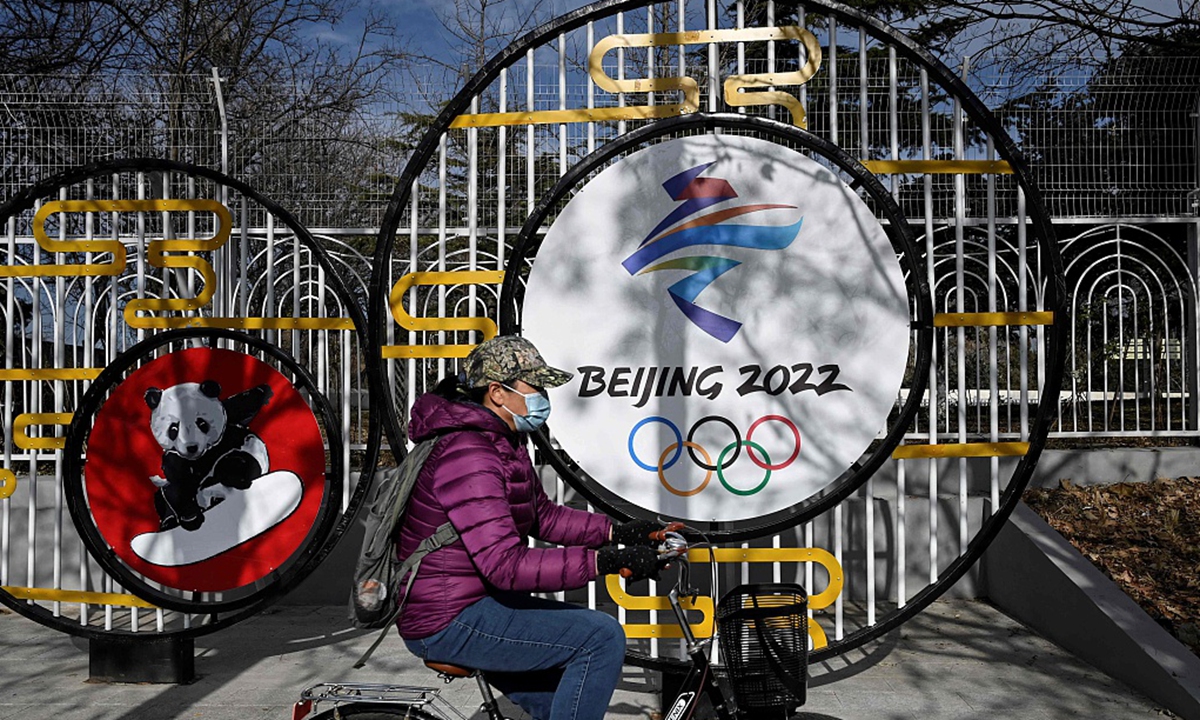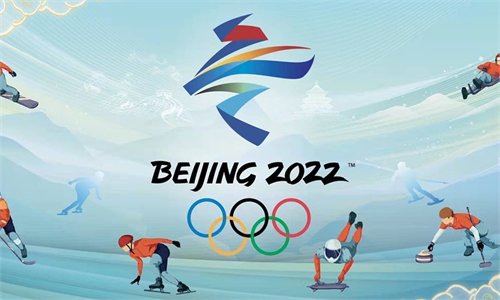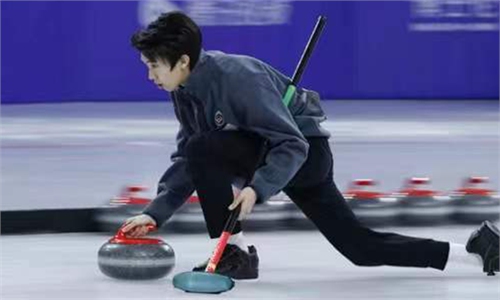Athletes strongly encouraged but not mandated to get COVID-19 booster shots: Beijing Winter Olympic Games Playbook

Photo: VCG
The Beijing Winter Olympic Games Organizing Committee released the second and final version of its Playbook on Monday night with revised regulations. Athletes are strongly encouraged to get COVID-19 booster shots but are not mandated to do so.
The Playbook is generally similar to the first edition but new rules have been added or refined in some sections. For example, athletes who have received a medical exemption will be able to enter the closed loop system in the same way as those who are vaccinated and not all participants will be in the same closed loop.
The booster shot is mentioned for the first time. All Games participants are "strongly encouraged" to receive booster shots but the Organizing Committee has not made it mandatory.
Previously, venue staff had told the Global Times that all Chinese service personnel of the Games had received booster shots.
Those who are not fully vaccinated will be quarantined at a designated location for 21 days after entering China. Those who have been fully vaccinated at least 14 days prior to departure for China can go straight into closed-loop management.
The Playbook states that athletes who have been granted a medical exemption will not need to be quarantined. They will be treated exactly the same way as vaccinated individuals except that they will be required to provide an additional antibody test report before entering China.
Compared to the first version of the Playbook, the clause that says that "an athlete shall not travel to China if s/he cannot completely exclude the possibility of contracting COVID-19 or other infectious diseases" has been removed.
The Playbook indicates that not all staff related to the Olympic Games are in the same closed loop and they need to strictly manage their contact with personnel in other closed loops.
After 21 days of closed-loop management and no abnormal conditions, participants of the Games are free to travel to the venues to perform their work but have to avoid contact with the general public.
Athletes are required to have their temperatures taken upon entry to the venues in addition to daily nucleic acid testing and pre-game nucleic acid testing. If body temperature reaches or exceeds 37.3 C, they will be checked by medical staff. However, if no other symptoms are present and the medical staff reaches unanimous consent, they may enter the venue for training under the rules governing close contacts.
Athletes will be allowed to watch their teammates play in a special seating area reserved for athletes but will not be allowed to engage with the general audience.
The Organizing Committee will provide athletes who test positive with equipment to train alone indoors.
The Playbook requires each delegation to have a dedicated "COVID-19 liaison officer (CLO)," and requires the CLO to clearly inform team personnel of "the importance of compliance and the potential consequences, including legal consequences, of non-compliance."
Members of Olympic delegations are recommended to leave China within 48 hours of the conclusion of all relevant competitions. However, unlike the Tokyo Summer Olympic Games, athletes can also voluntarily choose to stay for the closing ceremony.
Those participating in both the Winter Olympic Games and the Winter Paralympic Games can leave and re-enter China. Those who choose to leave and re-enter must recomplete all pre-departure testing and entry requirements, according to the Playbook.


